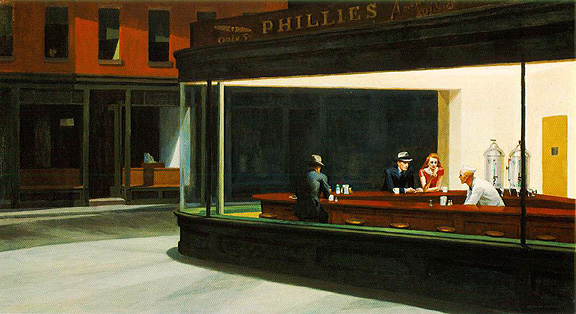Choose one of the following, copy the choice on to your blog, and post your response by Thursday, Dec. 13th by midnight. Your grade is based on how specific and detailed you are in your explanation.
1) How is the power of imagination a major theme of the story?
2) Why do you think the author chose to end the novel this way? (Please don't say " to make it more interesting and keep us guessing.")
3) There are many ironies present in the story. Choose one major irony and explain how/why the irony shapes the meaning of the story.
4) If you choose the following and answer the question well, you will receive 10 points extra credit:
In the early chapters of Pere Goriot by Honore Balzac (the same author that the guys read in the novel you are reading), the narrator describes the setting and conditions of early 19th century Paris where the main characters live.
"...in that famous valley of ever-peeeling plaster and muddy black gutters, that valley where suffering is always real and joy very often false, and the everyday turmoil so grim that it is difficult to imagine any castastrophe producing more than a momentary sensation there... A Parisian losing his way here would see nothing but lodging houses and institutions, penury or boredom, old age declining into death, bright youth pressed into drudgrey."
In what ways does Balzac and the Little Chinese Seamstress relate to this passage from Pere Goriot?
Friday, December 7, 2007
Tuesday, December 4, 2007
Othello test - Tragic vision
"According to critic Northrop Frye,'Tragic heroes are so much the highest points in their human landscape that they seem the inevitable conductors of the power about them, great trees more likely to be struck by lightning than a clump of grass. Conductors may of course be instruments as well as victims of the divine lightening.' Select a novel or play in which a tragic figure functions as an instrument of the suffering of others. Then write an essay in which you explain how the suffering brought upon others by that figure contributes to the tragic vision of the work as a whole. Avoid plot summary."
Be careful to respond to the prompt--that of tragic vision-- and not just the quotation. You should focus your answer not on Othello, but those effected by his actions and why they are so. What is it in their respective characters that make them part of the tragic vision? Make sure you define in your thesis statement what the tragic vision of this play entails.
Post by Thursday at midnight. I will grade them on Friday. If you don't post, you don't get a grade. Remember, if you use any other source or you paraphrase another source, you will receive a zero.
Be careful to respond to the prompt--that of tragic vision-- and not just the quotation. You should focus your answer not on Othello, but those effected by his actions and why they are so. What is it in their respective characters that make them part of the tragic vision? Make sure you define in your thesis statement what the tragic vision of this play entails.
Post by Thursday at midnight. I will grade them on Friday. If you don't post, you don't get a grade. Remember, if you use any other source or you paraphrase another source, you will receive a zero.
Subscribe to:
Comments (Atom)
